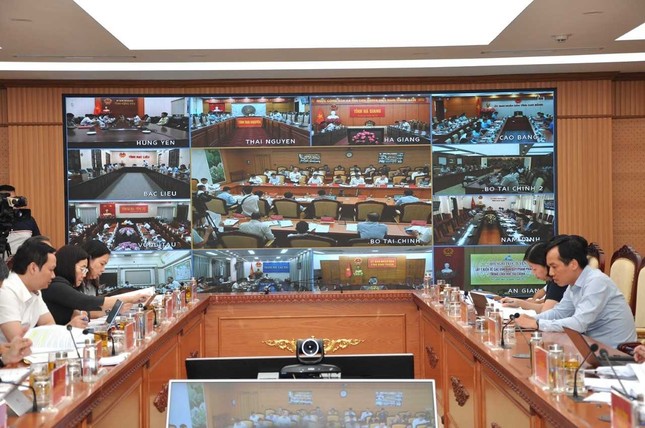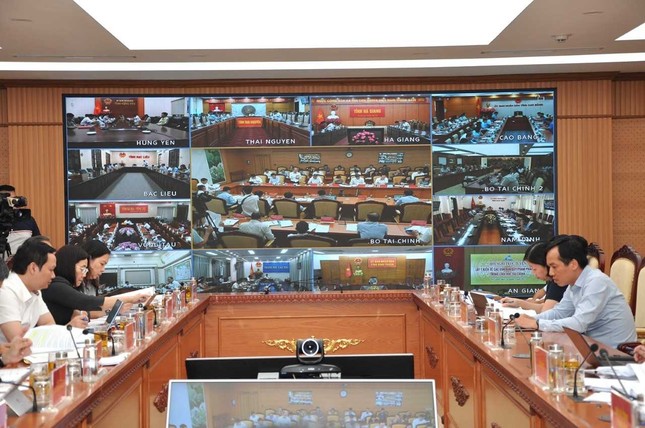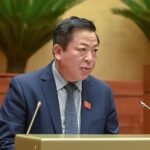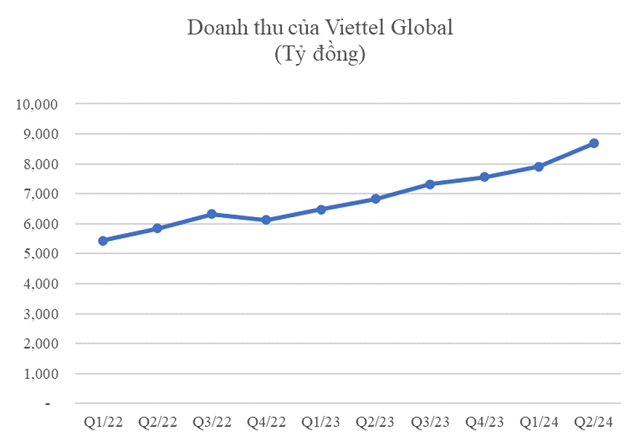On May 26, the Ministry of Finance organized a nationwide online conference to gather opinions on legal documents to realize the Party and State’s policy of promoting decentralization and rearranging the two-level local government in the financial sector.
Regarding the short time frame for drafting the documents and the need to work with a “run-and-queue” spirit, Minister of Finance Nguyen Van Thang acknowledged that while perfection might not be achievable, efforts would be made to minimize inappropriate regulations so that policies can promptly come into effect.
The Ministry of Finance reviewed 24 areas of state management and identified 563 contents, tasks, and authorities proposed for decentralization, delegation, and rearrangement of the two-level local government, covered under 233 legal documents.
Out of the 410 contents expected to be implemented in the near future across six decrees of the Ministry of Finance on decentralization, delegation, and authority definition, 75 contents, tasks, and authorities of the Minister of Finance will be decentralized to local governments. In the tax field, it is proposed to decentralize the task of formulating and issuing the table of calculation bases and the adjusted and supplementary table of calculation bases for the registration fee from the Ministry of Finance to the People’s Committees of provinces and centrally-run cities.

The Ministry of Finance seeks opinions on five draft decrees and seven draft circulars, focusing on crucial areas such as public asset management, national reserves, statistics, taxes, and fees…
Representatives from provinces and cities agreed with the strong decentralization policy for local governments in state management fields. However, there were still some concerns raised.
According to the Hanoi Department of Finance, the workload ahead in preparing for the two-level government model is enormous. Regarding investment and bidding alone, it is estimated that the district-level units in Hanoi have 23,000 projects that need to be reviewed and reported, with appropriate implementation plans when the new model comes into effect on July 1. Among them, separating the packages that have already been implemented across the new commune boundaries is challenging.
“Due to the unique characteristics of Hanoi’s urban governance model, we propose that the relevant decrees and circulars be issued as soon as possible before July 1, so that the city has enough time to prepare and synchronously implement the new model,” suggested the Hanoi Department of Finance.
The People’s Committee of Thanh Hoa province also requested the Ministry of Finance and central agencies to soon issue specific and clear guidance to ensure a smooth transition of authority from July 1.
As Thanh Hoa has been implementing the merger of many administrative units, including communes, wards, and towns, the province requested detailed guidance on the use, transfer, or auction of public offices and assets.
A representative of Hai Phong city expressed concern about the implementation of bidding projects during the commune rearrangement process, especially when a project is located in two or more communes. They questioned whether such projects should be decided by the provincial level or a host commune. In Hai Phong, most land-use bidding projects are assigned to the district level, and there are concerns that transferring them to the commune level could create difficulties, especially for projects spanning multiple communes…
Regarding decentralization and delegation, Minister Nguyen Van Thang emphasized, “Authority should be given to those who can perform the task most effectively and efficiently, along with a flexible mechanism that allows local governments to choose a suitable organizational model, avoiding a one-size-fits-all approach.”
The Minister instructed the units to carefully study and maximize the absorption of the opinions for submission to the Ministry of Justice for appraisal and then to the Government for signing and issuance within the set deadline. Simultaneously, the Ministry requested the Ministry of Justice and the Government Office to closely coordinate in the appraisal process and in seeking opinions from other Government members to ensure submission to the Government before May 30.
“Empowering Excellence: Minister Nguyễn Văn Thắng Advocates for Autonomy in High-Performing Sectors”
The Ministry of Finance is actively seeking feedback on draft decrees and circulars aimed at decentralizing financial authority. With input from all 63 provinces and cities, specific proposals have been put forward to ensure effective and synchronized implementation.
Proposed Minimum Wage for the Merged Province-City Region
The Ministry of Home Affairs has compiled a list of commune-level areas that will be subject to the new regional minimum wage framework, as outlined in Government Decree No. 74/2024. This follows the recent merger of provincial and communal administrative units, with the ministry delineating four distinct regions for this purpose.
Unlocking Vietnam’s Economic Potential: Unlocking One Challenge to Unlock 50% of GDP
“The Prime Minister acknowledged the situation as an endemic issue, akin to an illness that needs curing. It is a matter that requires immediate attention and remedy.”





















